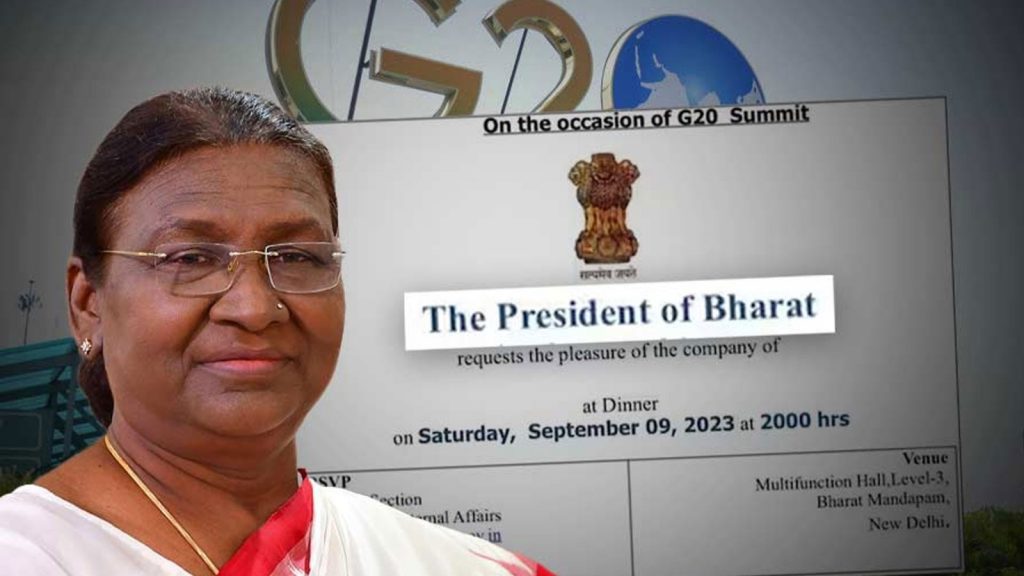Bharat: A new identity for India?

![]()
News Desk
India is abuzz with speculation about the potential abandonment of its English name, following a state-issued invitation sent to world leaders referring to the nation as “Bharat.”
Prime Minister Narendra Modi’s government has been steadfast in erasing remnants of British colonial rule from India’s urban landscape, political institutions, and history books.
However, the move to replace the country’s widely recognized moniker “India” with “Bharat” could be the most significant change yet.
Modi himself frequently uses “Bharat” to refer to India, a term rooted in ancient Hindu scriptures written in Sanskrit.
It’s one of the two official names for the country as per its constitution. Members of his Hindu nationalist party have previously advocated against using “India,” a name rooted in Western antiquity imposed during British rule.
This weekend, India hosts the G20 summit, with invitation cards stating that the state dinner will be hosted by the “President of Bharat.”
While the government has called a special parliamentary session later this month, it remains tight-lipped about its legislative agenda.
Unnamed government sources mentioned that BJP lawmakers might introduce a special resolution favoring the name “Bharat.”

These rumors have triggered mixed reactions, with some opposition lawmakers expressing concern about abandoning “India,” a name recognized worldwide.
Shashi Tharoor of the opposition Congress party hopes that both names can coexist, preserving a name steeped in history.
Former Test cricketer Virender Sehwag welcomed the prospect of a name change, urging India’s cricket board to adopt “Bharat” on team uniforms.
He highlighted that “India” was a name bestowed by the British and that reclaiming the original name “Bharat” was long overdue.
India has a history of renaming roads and entire cities to eliminate traces of the British colonial era.
This process has intensified under Modi’s leadership, emphasizing the need to shed a “colonial mindset.”
His administration has also modernized New Delhi’s parliamentary precinct, originally British-designed, and outlined plans to revamp India’s pre-independence criminal code to remove references to the British monarchy.
Additionally, Modi’s government has replaced Islamic place names from the Mughal Empire era with Hindu-centric names, a move criticized for promoting the supremacy of India’s Hindu religion.